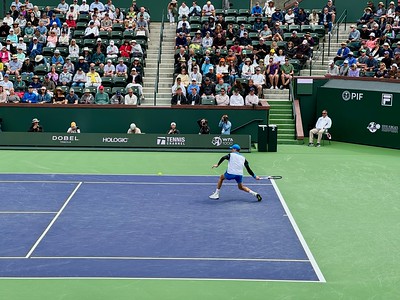MEN’S tennis world number one Jannik Sinner has been handed an immediate three-month ban following a settlement over his positive drugs test from March 2024.
The International Tennis Integrity Agency (ITIA) initially cleared 23-year-old Jannik Sinner of any wrongdoing after the World Anti-Doping Agency (WADA) appealed for a two-year ban.
However, following further proceedings, the case was settled in the Court of Arbitration for Sport (CAS), which ruled that Sinner “did not intend to cheat.”
Sinner explained that he was indirectly contaminated through his physiotherapist, who had treated a cut on his hand with a spray containing a banned substance.
According to his defense, the substance was unknowingly transferred to him, leading to the positive test result.
The case sent shockwaves through the tennis world, sparking heated debates about the fairness and consistency of anti-doping regulations.
Many questioned the timing and length of Sinner’s suspension, arguing that similar cases had resulted in much harsher penalties.
One of the most vocal critics was 24-time Grand Slam champion Novak Djokovic, who expressed concerns about bias “favouritism” in the sport.
“The inconsistency is something that frustrates all players,” he stated.
British player Liam Broady also weighed in, voicing his frustration during an interview with TalkSport: “It seems really unfair,” he said.
“There are several players I know and that I am friendly with a Swedish guy, Mikael Ymer, he got banned for two years because he missed three of his tests and for some reason, the world number one only gets a three-month ban.”
Sinner’s suspension officially began on 9th February 2025 and will end on 4th May, allowing him to compete at the next Grand Slam- the French Open.
Despite being sidelined since his Australian Open triumph over Alexander Zverev, he remains in contention to retain his world number one ranking upon his return.
The controversy has reignited discussions about fairness in tennis, with many calling for greater transparency and consistency in anti-doping rulings.
As Sinner prepares for his comeback, the debate over his case- and its implications for the sport-continues to intensify.



